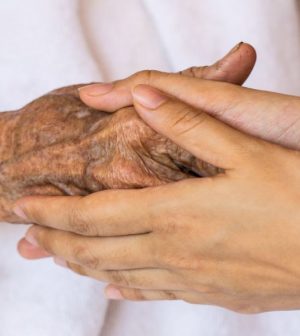- The Best Time of Day to Drink Bone Broth to Maximize Health Benefits
- 8 Ways to Increase Dopamine Naturally
- 7 Best Breads for Maintaining Stable Blood Sugar
- Gelatin vs. Collagen: Which is Best for Skin, Nails, and Joints?
- The Long-Term Effects of Daily Turmeric Supplements on Liver Health
- Could Your Grocery Store Meat Be Causing Recurring UTIs?
- Are You Making This Expensive Thermostat Error This Winter?
- Recognizing the Signs of Hypothyroidism
- 10 Strategies to Overcome Insomnia
- Could Artificial Sweeteners Be Aging the Brain Faster?
Few Countries Do Well Caring for the Dying

Americans don’t like to dwell on dying, so maybe it isn’t surprising that compared to other nations, the United States does just a middling job of providing a good death.
The United States ranked in the middle of 81 countries rated on how well their health care systems provide end-of-life care.
Only six countries — the United Kingdom, Ireland, Taiwan, Australia, South Korea and Costa Rica — earned A grades for the physical and mental care they offer dying patients. The United States earned a C, placing it 43rd. Thirty-six countries received Ds or Fs.
“Society should also be judged on how well people die,” study leader Eric Finkelstein said in a Duke University news release.
“Many individuals in both the developed and developing world die very badly — not at their place of choice, without dignity, or compassion, with a limited understanding about their illness, after spending down much of their savings, and often with regret about their course of treatment. These things are very common,” said Finkelstein. He is a palliative care expert and professor with Duke-NUS Medical School in Singapore and the Duke Global Health Institute in Durham, N.C.
For the study, Finkelstein and his colleagues surveyed more than 1,200 caregivers from several countries to identify the 13 most important factors to patients at the end of life. They included: comfort and proper pain management; a clean and safe space; being treated kindly; and treatments that target quality of life, rather than merely extending life.
The researchers then asked 181 palliative care experts worldwide to grade their countries’ health systems on those 13 factors.
“Perhaps the main conclusion from this important exercise is that most people in the world die badly — many through no treatment at all and many through excessive, often futile, treatment that increases suffering,” said Richard Smith, a palliative care expert and former editor of the British Medical Journal.
While it’s little surprise that most of the highest-ranked nations are wealthy countries, the middle ranking for the United States shows that richer nations don’t always pay attention to end-of-life care, the study authors noted.
“We spend so much money trying to get people to live longer, but we don’t spend enough money in helping people die better,” Finkelstein said.
“Generally, people don’t talk about death. COVID has made it less taboo. We have an opportunity to continue this discussion and not just help COVID patients, but to help everyone have a better end-of-life experience,” he added.
The findings were recently published online in the Journal of Pain and Symptom Management.
More information
For more on compassionate end-of-life care, go to the U.S. National Institute on Aging.
SOURCE: Duke University, news release, Jan. 18, 2022
Source: HealthDay
Copyright © 2026 HealthDay. All rights reserved.










